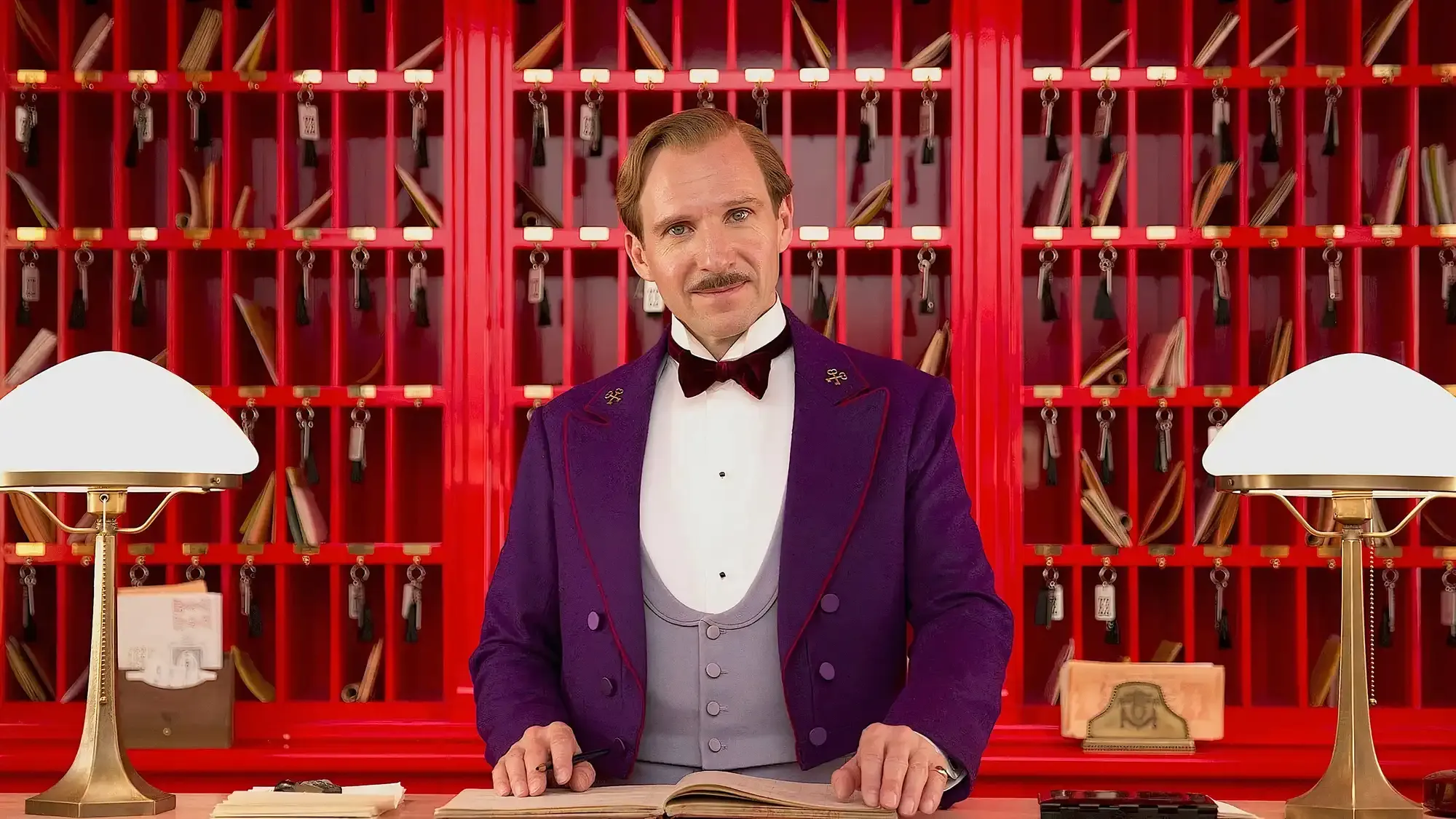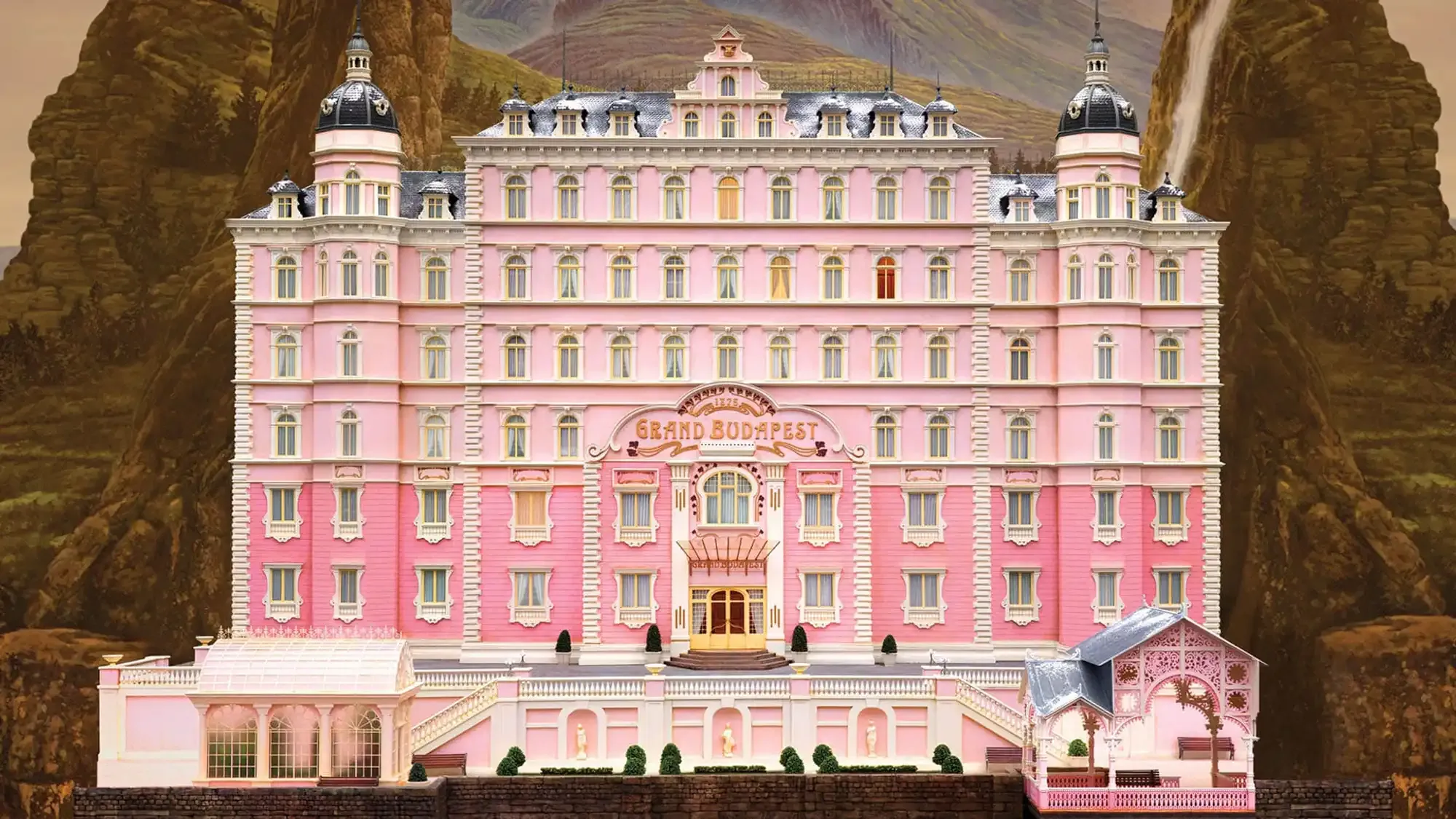"A Whimsical Symphony of Visual Storytelling"
Posted Saturday, Nov 18, 2023 161
Wes Anderson`s `The Grand Budapest Hotel` is a delightful romp through the interwar years in a fictional European country. The story follows the misadventures of Gustave H, a legendary concierge, and his protégé Zero Moustafa, involving a priceless Renaissance painting and a family fortune. With a complex narrative structure that weaves different timelines, the film unfolds like a nesting doll of stories within stories.
Themes of friendship and loyalty, the inevitability of change, and the bittersweet nature of nostalgia are dressed in a tone of whimsy and melancholy that is quintessentially Andersonian. The film balances its light-hearted moments with an underlying sense of loss, with the grandeur of the hotel standing as an elegy to a bygone era.
Ralph Fiennes leads with a charismatic turn as Gustave H, blending comic timing with a surprising emotional depth. Newcomer Tony Revolori, as Zero, brings earnestness and heart, creating a dynamic central duo. A star-studded ensemble cast, including Adrien Brody, Willem Dafoe, and Tilda Swinton, delivers memorable performances that add to the film`s eccentric and captivating world.
Wes Anderson`s distinctive visual and narrative style is meticulous and pervasive. Every frame is thoughtfully composed, with symmetry and color choice contributing to a storybook-like aesthetic. Anderson directs with an unwavering vision executed to perfection.

The score, by Alexandre Desplat, is as lively and intricate as the film`s production design. It serves as an additional character, imbuing each scene with a sense of adventure and nostalgia. The music matches the on-screen energy and enhances the overall ambiance.
Robert Yeoman`s cinematography turns each frame into a piece of art. The film`s use of camera moves and the juxtaposition of colors create a visual feast, bringing Anderson`s elaborate set pieces to life with grace and clarity.
The production design is nothing short of spectacular, representing the height of Anderson’s creative vision. The titular hotel is a marvel, bespeaking the luxury and elegance of an era fading into memory. Each environment is saturated with intricate details that tell their own story.
The use of practical effects, miniatures, and limited CGI lends a playful charm to the film, ensuring that the fantastical elements never overshadow the storytelling but instead enrich it.

The editing is sharp and purposeful; it punctuates the humor and keeps the intricately layered narrative coherent and engaging. Transitions between the stories and timelines are handled seamlessly, projecting the viewer effortlessly through the complex structure of the film.
Anderson ensures a brisk pace that matches the swift wit of the script. Despite the intricate plotting, the film never feels bogged down, gliding from one scene to the next with effervescent energy.
The dialogue is as meticulously crafted as the visuals, brimming with sharp wit and rapid-fire exchanges. Each line delivered contributes to building the characters and the world they inhabit, with punchy humor often masking deeper sentiment.
While `The Grand Budapest Hotel` dazzles with its visual splendor and comedic elements, it`s not without fault. The stylization can sometimes feel overwhelming, potentially alienating those who prefer a more grounded cinematic experience. However, for fans of Wes Anderson, the film hits all the right notes, showcasing his unique blend of humor, heart, and artistry.
Watching `The Grand Budapest Hotel` is like stepping into a moving painting; the experience is warm, enchanting, and deeply engaging. The film is a testament to the power of visual storytelling and is crafted with such love and detail that it resonates on both an emotional and aesthetic level. It’s a cinematic confection that feels like a rare treat—a narrative pastry, layered and flavorful, that will surely linger on the palette of moviegoers long after the credits roll.